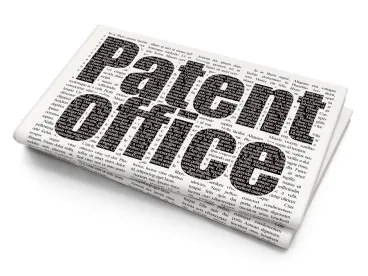Takeaway: A proposed combination of references that does not explain what is believed to be missing from the primary reference may result in the Board denying institution due to a lack of explanation as to how a person of ordinary skill would have combined the references.
In its Decision, the Board denied the Petition as to all challenged claims. Thus, the requested inter partes review was not instituted.
Petitioner had requested institution of an inter partes review of claims 1-5 of the ‘864 patent. The asserted ground of unpatentability was that claims 1-5 would have been obvious under 35 U.S.C. § 103 in view of Stoutenburg and Karas. The ‘864 patent relates to a computer-implemented “system and method for circulating electronic gift certificates.”
The Petition asserted that 17 different limitations in dependent claims 2, 3, and 4 were means-plus-function limitations under 35 U.S.C. § 112, ¶ 6. Moreover, the Petitioner “[identified] specific portions of the ‘864 patent specification that allegedly describe structure corresponding to the claimed function for each limitation.”
The Board found that the limitations in question were computer-implemented means-plus-function limitations, noting the so-called Katz rule that “[e]xcept for a narrow exception concerning functions that are ‘coextensive’ with a microprocessor itself, such as ‘processing’ data, ‘receiving’ data, and ‘storing’ data, a computer-implemented means-plus-function element is indefinite, under § 112, ¶ 2, unless the specification discloses the specific algorithm used by the computer to perform the recited function.”
The Board then went on to note that it “was not persuaded that Petitioner [had] shown that the ‘864 specification describes an algorithm adequate to provide structure to the corresponding function for all the means-plus-function limitations of claims 2, 3, and 4.” In one instance, for example, the Board found that “Petitioner [had pointed] to server 220 and settlement manager 221, 223 as shown in Figure 1, and steps S70 and S80 of Figure 2, as providing the required structure[,]” but then concluded that “[n]othing in the figures themselves . . . clarifies anything other than that servers to accomplish the checking function exist in the system and steps are taken to achieve the checking function during the process shown in Figure 2.” As stated by the Board, “[n]either figure includes ‘description of the means or steps taken to accomplish the end result.’”
Because the Board was “not persuaded that Petitioner [had] pointed out adequate structure corresponding to at least one of these limitations in each of claims 2, 3, and 4[,]” the Board concluded that “Petitioner [had] not properly provided sufficient information for a determination of the scope of these claims” and thus could not “conduct the necessary factual inquiry for determining obviousness.” Thus, the Board found that it could not conclude “that there is a reasonable likelihood that Petitioner would prevail in its challenge of claims 2-4.”
As for Petitioner’s assertion that claims 1 and 5 would have been obvious over Stoutenburg and Karas, the Board found that “Petitioner [had never described] how Stoutenburg differs from the claimed subject matter such that a particular teaching of Karas would be relied upon to overcome that deficiency.” Thus, the Board concluded that “Petitioner [had neglected] to explain how it [was] proposing that a person of ordinary skill would have combined the two different systems.” Because the Board was of the view that “Petitioner [had neglected] to explain how it [was] proposing that a person of ordinary skill would have combined the two different systems[,]” the Board was “not persuaded that Petitioner has demonstrated a reasonable likelihood that it would prevail on the ground that claims 1 and 5 are unpatentable over Stoutenburg and Karas.”
First Data Corporation v. Coqui Technologies, LLC, IPR2015-01667
Paper 6: Decision Denying Institution of Inter Partes Review
Dated: February 9, 2016 Patent: 7,580,864 B2
Before: Grace Karaffa Oberman, Bryan F. Moore, and Jennifer S. Bisk
Written by: Bisk
Related Proceedings: Coqui Techs., LLC v. Kohl’s Corp., Case No. 2:15-cv-93 (E.D. Tex.); IPR2015-01668



 />i
/>i

